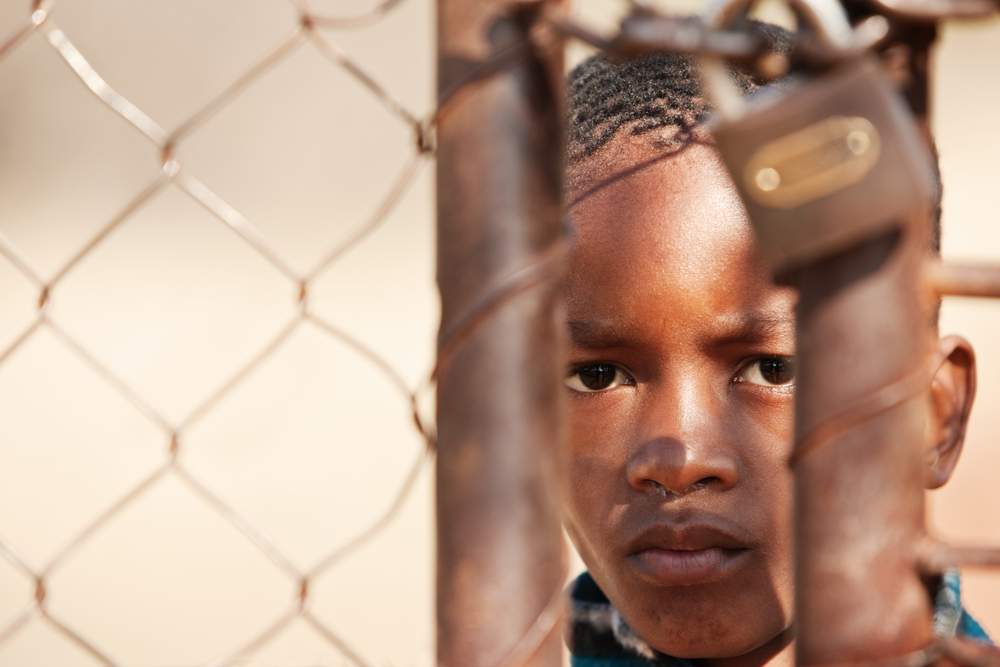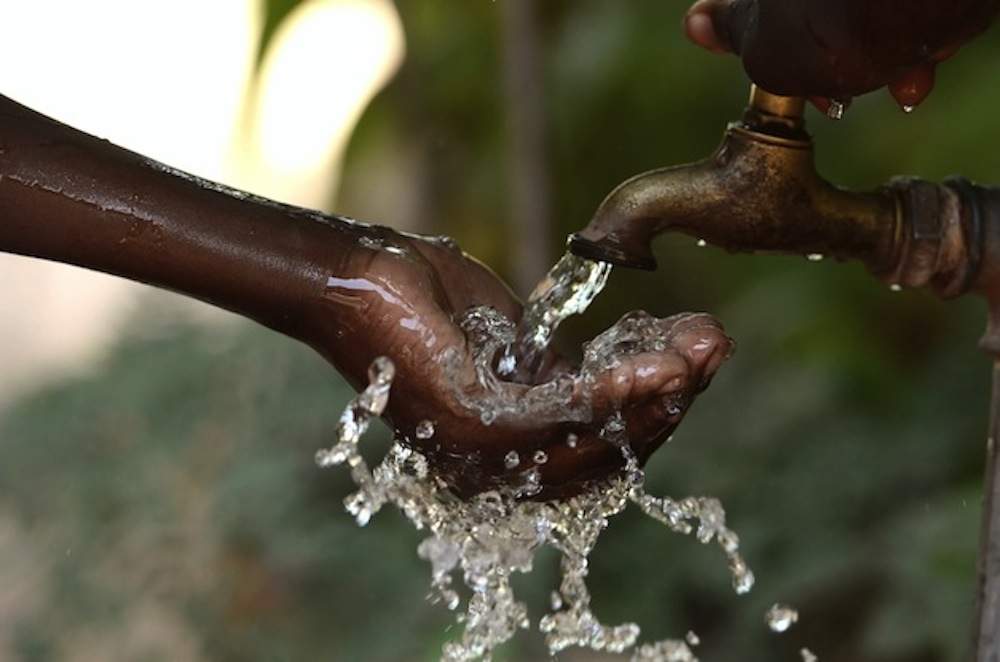We arrived at the Liberian refugee camp in the dead of night. The headlights gave me a small taste of what my home would be for the next two months. Tightly packed shacks and shanties cluttered the dark and litter-strewn streets. Our driver navigated the narrow and rutted earthen roads as carefully as he could. Even so the car bottomed out several times before we arrived at the guesthouse for international volunteers.
After a brief tour of the guesthouse by candle- and flashlight, I set up my mosquito net and crawled into bed. It had been a long day.
Toronto, Canada to Frankfurt, Germany. Eight hour layover. Frankfurt, Germany to Lagos, Nigeria. Lagos, Nigeria to Accra, Ghana. And finally the car ride to the Buduburam Liberian Refugee Camp situated a couple hours outside the city.
Exhausted and drenched in sweat, I listened to a mouse scurry across the rafter above my bed. What am I doing here? I thought to myself as I drifted off to a restless sleep.
An unconventional travel choice

Digging in

With tens of thousands of Liberian refugees living in the camp, access to water was a real challenge. So armed with a rickety wheelbarrow, a pick axe and a few shovels, we did our best to build wells in the community. It was hot, back-breaking work but knowing the value it would bring to the camp made it all worthwhile.
However, the most rewarding part of the job happened in between the swings of the pick axe: during the conversations with the Liberian refugees who were volunteering with us. In their past lives they were teachers and engineers and scientists, among other occupations. Each had a heartbreaking story about how they ended up driven from their homeland by war and tragedy. They had all lost family or friends to the savagery of Charles Taylor.
Working alongside these men put into perspective the definition of hardship. Suddenly spending 20 minutes on hold with my phone company didn’t seem so terrible. We got a couple wells dug while I was there, and I’m grateful for every blister on my hands.
A crappy job
Without the proper flow, human sewage would build up along the crude ducts and become perfect breeding grounds for malaria-carrying mosquitoes and cholera bacterium.
The most common clogging culprits were black plastic bags of human feces that were tossed into the sewer by nearby residents. Camp residents had to pay to use the few public washrooms available in the camp. With little to no income and no capacity for indoor plumbing, the black bag was the only option for many people.
And so every week the WATSAN crew would gather up their limited tools, consisting of a couple rakes and shovels, and go clean some sewers. WATSAN was composed primarily of local refugee volunteers and a few international volunteers. Those international volunteers were made up of Richard from the UK, Heather from the US, and me from Canada.
The rules were simple: the person with the most points wins. Here’s how the points broke down:
- 10 points for digging out a mystery Black Bag
- minus 10 points for puncturing a mystery Black Bag with your rake causing its not-so mysterious contents to ooze out
- 15 points for an article of clothing
- 20 points for a feminine hygiene product
- 25 points for a used condom
- And the ultimate score: 50 points for a dead chicken
It was a ridiculous game, but it certainly helped pass the time.
Trying to be a superhero
One weekend we wanted to kick back and relax at Kokrobite, a very touristy beachside town on the coast of the Gulf of Guinea. It was rainy season in Ghana, and although we had had sunny weather for most of the weekend, our luck ran out on the last night of our stay.
After a fun night of partying in a bungalow by the beach, four of us decided to call it a day and make the twenty minute hike back to our hotel. It had been raining, and raining hard, all evening. Although it had let up in time for us to return to the hotel, the roads had become rivers, making it a treacherous yet amusing trip. Halfway back to the hotel, Travis and I were about twenty feet ahead of Anne and Rob, who were lagging behind.
My conversation with Travis was suddenly interrupted when we heard Rob cry out from behind us. Like the compassionate people we were, both Travis and I started laughing, assuming Rob had just fallen into a puddle. However, our amusement was cut short when we realized the true source of his distress. A man had just ripped Rob’s camera from his shoulder and was now fleeing with it into a dark side alley.
When the moment of shock wore off, Travis cried out, “Give it back, you wanker!” The thief did not obey my Australian friend. And so, armed only with an empty Fanta bottle and a gut full of adrenaline, I joined Travis and chased after the thief. It didn’t take long for us to lose sight of him or for me to remember that I was not, in fact, Batman. As the adrenaline wore off, I quickly realized how exceedingly stupid it was to be chasing a criminal through dark alleys in an unfamiliar town.
What Ghana taught me
The images we’re fed of Africa are typically ones of war, famine, and helplessness. My trip to Ghana opened my eyes to see that it’s also a place of rich culture, beauty, history, and hospitality. And while I witnessed a lot of poverty and hardship during my time there, I also saw thriving businesses, Universities, fancy restaurants, high-end markets, and affluence. As with any place, you’re going to find a mix. Ghana was no different, and it taught me the importance of not painting Africa with a single brush.
When access to healthcare, clean water, food, money, and a roof over my head has always been there, it’s easy to take it for granted. I have a lot to be thankful for, living in a country like Canada. My experience volunteering in Ghana has helped me realize that and continues to help keep things in perspective. It’s also made me more sympathetic to those people living in tough circumstances and has motivated me to help as much as I can.
Forking over money in order to volunteer in a developing country in difficult conditions may not be an obvious vacation choice. But it’s a transformational one. And it’s one that will reward you with a lot more than cheap souvenirs and a sunburn.
To read more transformational travel stories and to learn more about volunteering, check out the following:
- Why We Decided to Road Trip Across Europe in a Self-Built Campervan
- Travel Made me Who I Am Today
- How a Dog Walk Changed My Life Forever
- Why You Should Forgo the American Dream and Let Travel Transform Your Life
- Getting Outside The Box: One Family’s Journey to Full Time Travel
- Is It Worth It? An Insider’s Thoughts on Voluntourism in Orphanages and Schools
- From Tourist to Agent of Change: What You Need to Know About Voluntourism
- How to Get Started with Voluntourism
- Check out our RTW Traveler Profiles and fill one out yourself
- Click here if you want a BootsnAll team member to help you plan your trip of a lifetime
Photo credits: Gwoeii, Lucien Coman, Riccardo Mayer
